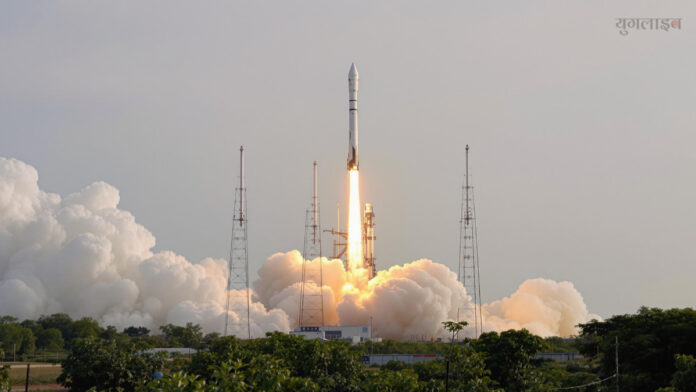India’s space program is set to achieve a significant milestone as the country’s first privately manufactured Polar Satellite Launch Vehicle (PSLV) prepares to launch a cutting-edge technology demonstration satellite later this year. The mission will showcase dozens of indigenous innovations, marking a new chapter in India’s commercial space capabilities.
ISRO Chairman V Narayanan revealed in an exclusive interview that the Technology Demonstration Satellite (TDS-1) will carry up to 35 experimental technologies, including advanced propulsion systems and quantum payloads. The PSLV, being built by a consortium of Hindustan Aeronautics Limited (HAL) and Larsen & Toubro (L&T), is in “advanced stages of realisation.”
Tesla Expands India Presence: Elon Musk Posts 13 Job Openings Following PM Modi Meeting
Key Features of TDS-1
- Indigenous 300 milli-Newton electric propulsion thruster
- Native atomic clock technology
- Quantum payload capabilities
- Combined chemical and electric propulsion systems
“It is called a technology demonstration satellite (TDS-1)… There are 35 experimental things. Among other things, along with chemical propulsion, we are also going to use electric propulsion,” Narayanan stated, highlighting the satellite’s innovative features.
The electric propulsion system represents a significant advancement, with the 300mN thruster currently undergoing life cycle testing at ISRO’s Liquid Propulsion Systems Centre (LPSC). This system will be India’s first fully indigenous electric propulsion deployment, surpassing the previous 75mN thruster tested on GSAT-9.
The launch, scheduled for the third quarter of 2025, is part of a larger contract for five PSLV rockets to be manufactured by the private sector. ISRO is providing technical guidance to its industrial partners throughout the development process.
This mission represents a crucial step in India’s space commercialization efforts and demonstrates the country’s growing capabilities in indigenous space technology development. The successful launch will establish India’s private sector as a key player in the global space industry while advancing numerous cutting-edge technologies for future missions.




